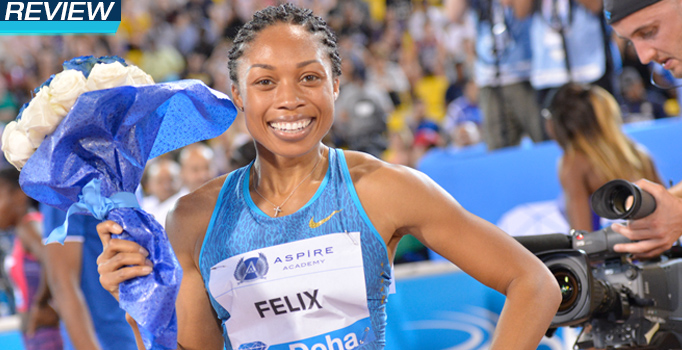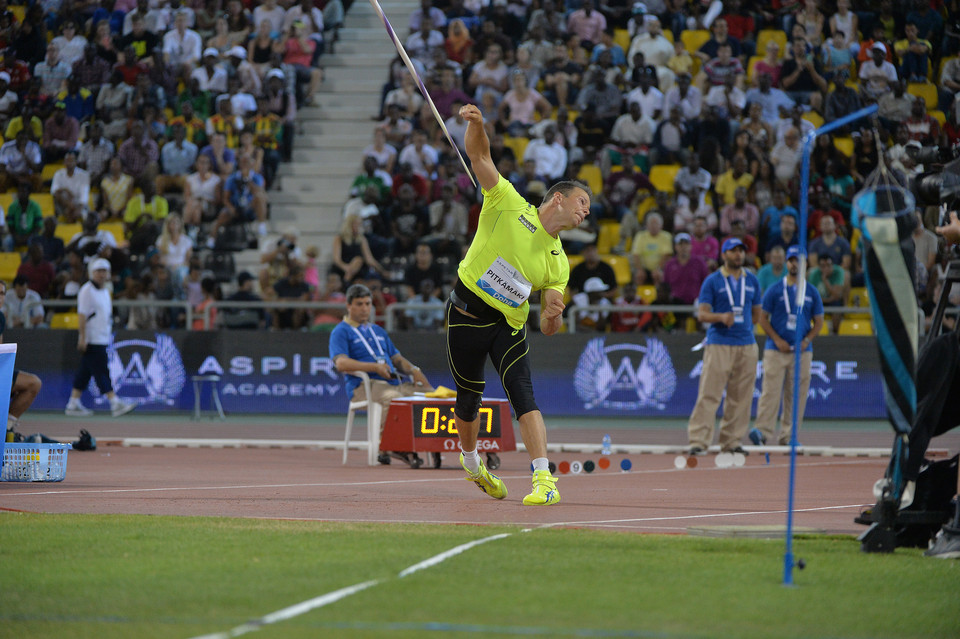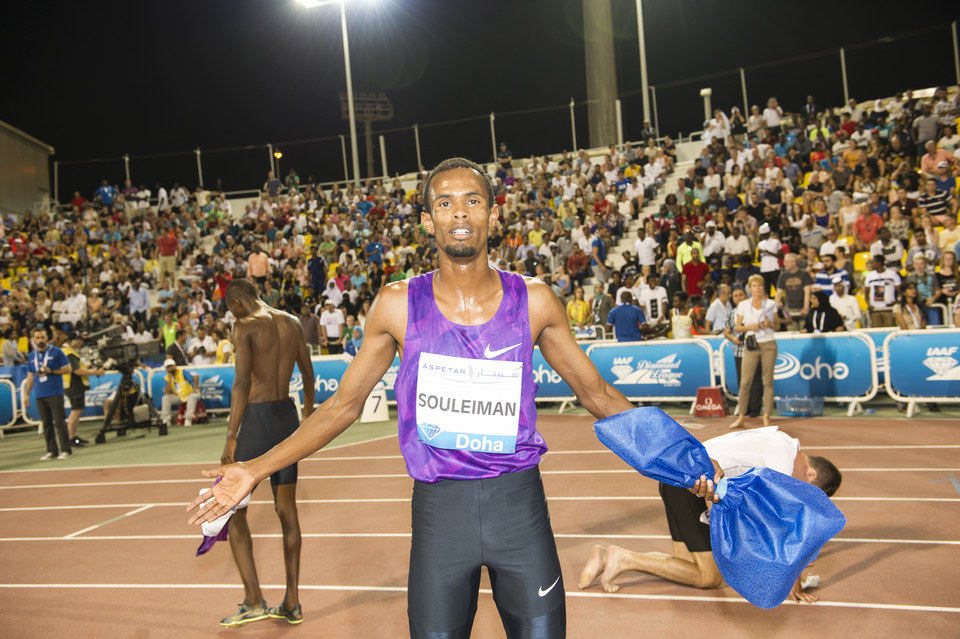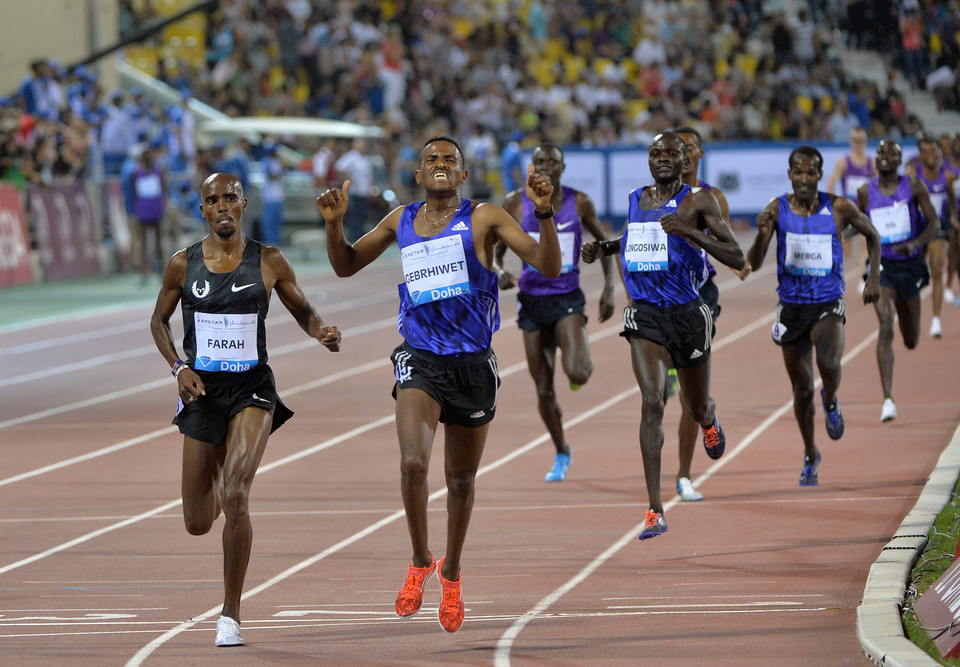The three-time world 200m champion and Olympic champion sped around what US aficionados like to call the furlong in 21.98 to post the first of three IAAF Diamond League records on the night, equalling the time set by Veronica Campbell-Brown in New York five years ago. (Pedro Pablo Pichardo in the triple jump and Jasmin Stowers in the 100m hurdles were soon to follow in Felix’s footsteps.)
A picture of concentration as she went to her blocks in lane five of the Qatar Sports Club, even a delayed start when The Bahamas’ Anthonique Strachan raised her hand because of concerns about the crowd noise couldn’t distract Felix.
She was ahead after 50 metres and had a slight advantage over Ivory Coast’s Murielle Ahoure, who was chasing hard one lane to her inside, coming off the bend
From the 120-metre point, Felix’s form just flowed and she extended her advantage to two metres by the finish, running the best time in the world since Felix herself ran 21.88 in the 2012 Olympic final. She is also the only person to run faster than 22 seconds during that period.
Friday’s victory marked the 12th win in Doha for the popular Felix, who was on many of the meeting posters, and the 17th in a Diamond Race event.
Ahoure had to settle for second in 22.29, the equal-second best time of her career and just 0.05 away from her national record, but should still get recognised for an outstanding run.
There were no fewer than 11 world-leading marks in Doha on Friday and five meeting records, in addition to the three IAAF Diamond League standards.
Among the other highlights was Tero Pitkamaki’s last-round throw of 88.62m to win the javelin.
Finland’s 2007 world champion was languishing down in fifth place prior to the last round but then dramatically launched his spear high across the Qatar night sky to defeat a field that included Olympic champion Kershorn Walcott and world champion Vitezslav Vesely, who finished eighth and third respectively.
Vesely was lying in first place going into the sixth round of throws with 83.67m but was first overtaken by Pitkamaki and then by European champion Antti Ruuskanen, the Czech being unable to improve with the last throw of the competition.
Djibouti’s Ayanleh Souleiman was a delighted winner of the men’s 800m in 1:43.78, confounding most pundits who had generally been predicting the race was going to be decided between Ethiopia’s world indoor and outdoor champion Mohammed Aman and Kenya’s world 1500m champion Asbel Kiprop.
In the end, neither man had any real impact on the race after Souleiman hit the front just before the final bend and held off all challengers.
Kiprop, later saying that he still needed to do some speed work but was generally happy with the outcome, finished fifth in 1:45.11.
Aman couldn’t have been happy though with his first race of the year after struggling all the way down the home straight and coming home ninth in 1:47.38.
Hagos Gebrhiwet showed Mo Farah a clean air of heels over the last lap of the 3000m to win in 7:38.08. The Ethiopian held off a late surge from Britain’s double world, Olympic and European champion, as Farah failed to cover his rival’s move just before the bell and he had to come from a long way back but just came up short when finishing second in 7:38.22
Other world-leading marks were delivered by Bershawn Jackson, who won the 400m hurdles in 48.09; Dawit Seyaum won the women’s 1500m in 4:00.96 while Kenya’s Virginia Nyamburu caused possibly the biggest upset of the night as she started the women’s 3000m steeplechase as a pacemaker but, after leading the field through to the agreed 2000m point, carried on going to win in 9:21.51.
Phil Minshull for the IAAF
15 May, 2015









